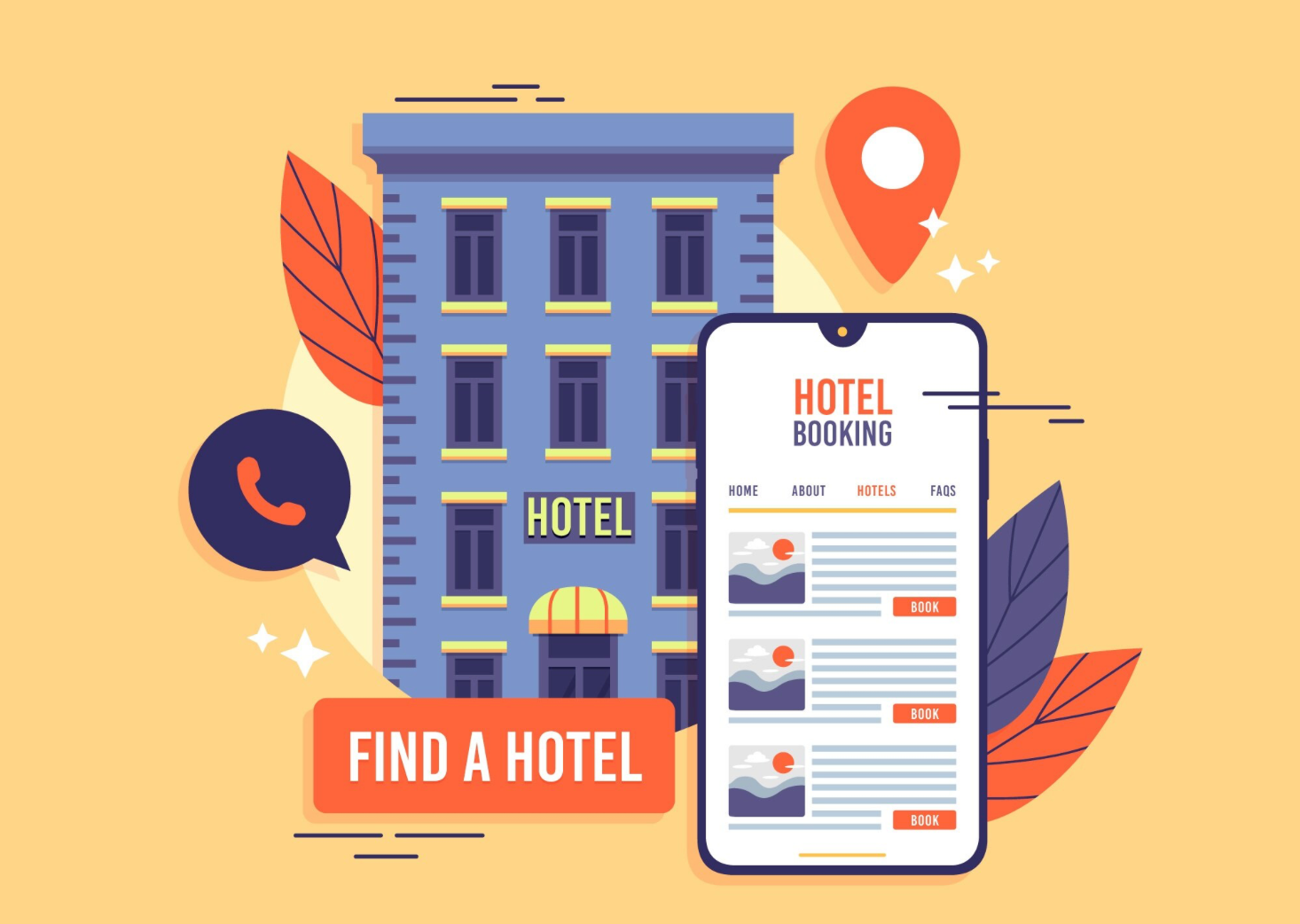Hotels & Accommodations
Google now indexes Instagram content: What this means for hotels & SEO strategy

It used to be that when someone searched for your business on Google, your Instagram pages wouldn’t appear. That’s finally changing, as Instagram has decided to allow Google to display public posts, reels, and videos in external search results.
This change opens a new path for organic reach and discoverability. With Instagram content now visible outside the app and directly in search results, it optimizes visibility for search-first intent. This latest move strengthens the connection between SEO and social media, creating new opportunities for businesses to reach their audiences.
How does Instagram indexing benefit hotels?
The ability to showcase real travel experiences through Instagram content enables hotels to connect more effectively with potential guests. When users can access this level of experiential content on search engines, hotels will experience numerous benefits:
1. Increase in search visibility through user-generated content
As AI-generated content becomes more widespread, the demand for genuine and authentic content grows. AI-powered search engines now prioritize original and user-generated content (UGC).
While travelers are often drawn to picture-perfect photos and videos when planning trips and booking hotels, they also seek real, unfiltered insights into a hotel. Travelers want to see authentic experiences to get a true sense of a potential hotel stay. This change makes Instagram’s decision to allow Google to index posts, reels, and videos a significant turning point.
2. Expanding the audience
Instagram’s audience is growing rapidly. With Instagram posts now being indexed, this creates an opportunity for hotels to significantly grow their reach. For example, if someone searches for “Best Rooftop Chicago,” a captivating reel could easily catch their attention. That’s why engaging visual content is more important than ever for search rankings.
3. Boosts local SEO
Using keywords in Instagram captions and hashtags helps users find relevant content. This means that when users make common searches like hotels near popular attractions or the best things to do in a specific neighborhood, properties have more chances to appear and rank higher. Tagging the hotel’s location and sharing authentic, local experiences increases engagement and helps people connect more directly with the hotel’s presence in the area.
4. Enhanced and trusted brand presence
Honest reviews of visitors’ experiences boost user trust. It also strengthens your brand by increasing opportunities to build your property’s search visibility through posts, reels, and stories. Potential guests may feel more confident and at ease booking a stay when they can find engaging content about your hotel.
How to optimize your Instagram content for SEO
Since Google search engine indexing is more important than ever, brands must create social media content with search engine optimization (SEO) in mind. Here are some key elements that can influence how and whether Google indexes an Instagram post in search results:
- Keep your Instagram account public: To begin with, hotels need to ensure that they not only have a public Instagram account but also opt in to the update.
- Use keyword-rich captions: Incorporate keywords organically into your captions. Consider your audience’s needs when considering the keywords you target in your SEO strategy and naturally weave them into your captions.
- Remember, hashtags are crucial: Hashtags work similarly to keywords; adding trending or niche hashtags that correspond with your audience’s search queries further enhances discoverability.
- Optimize your alt tags: To improve search engine visibility and help search engines better understand the purpose of your content, include keywords naturally in the alt tags of your Instagram posts
- Engage the audience: Pose queries and respond to remarks to promote interactions. Use clear calls to action (e.g., “Share your thoughts,” “Save this post for later”). Stories or posts with high engagement levels indicate valuable and highly interactive content.
- Consider value-first content: In this new zero-click world, focus on content creation that provides value and information to your audience.
- Optimize your bio: Using relevant keywords, fully optimize your bio with accurate, consistent information across other digital channels.
- Use analytics & insights: Track your insights on a regular basis to determine which content works best.
Conclusion
Instagram’s decision to make its content searchable by Google will significantly impact the hospitality industry, where potential guests search for travel content online. Currently, visibility is essential; you need to appear where your audience is already looking. This feature creates a new opportunity for organic reach and discovery and offers hotels an excellent chance to combine social media and SEO through authentic storytelling.
Hotels can boost their visibility on social media and search results by optimizing their Instagram content with the right hashtags, keywords, alt tags, and engagement techniques. Businesses that move quickly to align their social media strategies with search behavior will lead in visibility, trust, and bookings as social media and SEO become more interconnected.
About Cendyn
Cendyn is a global hospitality cloud-based technology company that enables hotels to drive revenue, maximize profitability, and create deeper connections with guests through its integrated solutions. Serving hoteliers for nearly 30 years, Cendyn drives commercial success for hotels through its Find, Book, Grow promise: find the right guests, drive them to book direct, and grow loyalty and revenue across the spectrum of digital guest interactions.
Cendyn has over 35,000 customers worldwide in more than 150 countries generating more than $20 billion in annual hotel revenue. The company supports its growing customer base from locations across the globe, including the United States, France, the United Kingdom, Singapore, Bangkok, and India. To find out more, visit cendyn.com
Hotels & Accommodations
How independent hotels can stay visible in the AI era of distribution

Chris Bowling, head of digital and consumer marketing at BWH Hotels GB, shares some advice for independent hoteliers on how to remain competitive and visible.
There is clearly great potential for artificial intelligence to reshape how guests discover and book hotels.
We’re already seeing early moves in this direction, with companies like ChatGPT developing e-commerce capabilities and platforms such as Perplexity experimenting with shopping features. These tools haven’t yet mastered hotel bookings – but when they do, the shift could be significant.
The risk for independent hotels is that this change won’t happen evenly across the sector. Online travel agents are in a prime position to move quickly. With deep resources and well-established technology, they’re well placed to integrate with new AI-driven platforms as they emerge. Their speed and scale mean they could gain even greater dominance in the booking journey, leaving independent properties more reliant on third-party distribution.
That doesn’t mean independent hotels are out of options – but they must start preparing now. A key first step is ensuring that the property’s digital presence is structured, accurate and consistent.
AI platforms surface content that is easy to interpret. If a hotel’s website is slow to load, short on useful content or not optimised for mobile, it risks becoming invisible. Equally, listings across Google, Apple Maps and social media channels need to be regularly updated to remain relevant to both users and AI search tools.
Trust will also be an important factor in the adoption of AI booking tools. A June survey of more than 2,000 of BWH Hotels GB’s BW Rewards members found that only 11 per cent had used an AI tool to book a hotel. However, 57 per cent said they would consider doing so, but only if they trusted the brand behind the tool.
This reinforces the idea that AI won’t just be a technological shift; it will also be a reputational one. Guests are more likely to follow trusted brands into emerging booking environments, which is a real opportunity for hotels that invest early in trusted partnerships and recognisable platforms.
Independent hoteliers also need to take ownership of their guest data. As AI becomes more personalised, relying on a third party for all guest interaction creates a serious disadvantage. Investing in a direct booking engine, a CRM system or even a simple email capture strategy can give hoteliers the insight needed to personalise offers, encourage return visits and reduce dependency on OTAs.
That said, few independent properties have the time, budget or in-house knowledge to build AI integrations from scratch. This is where partnerships matter. Working with technology providers – or joining a brand that is looking to embrace AI infrastructure – can potentially give hotels access to tools that would otherwise be out of reach. This could include integrations with voice search, AI chat platforms and personalised booking engines.
The final piece is skills. AI will touch every part of the business, from operations to marketing to front desk. A basic understanding of how digital systems work – and how to evaluate new technology – can make a meaningful difference. Teams don’t need to become experts, but they do need to feel confident in adapting to a rapidly changing landscape.
In a market where visibility is everything, independent hotels that take action now – building strong digital foundations, developing data strategies and choosing the right partners – will be far better placed to thrive when AI becomes a central part of how people travel.
Hotels & Accommodations
How biophilic design is quietly transforming the future of hotel real estate – ET Hospitality
Hotels & Accommodations
Odisha Crime Branch Crackdown on Online Hotel Booking Fraud; 2 Held

The Criminal Investigation Department of Odisha Police (CID-CB) has arrested two individuals from Rajasthan for their role in a sophisticated online hotel booking scam targeting pilgrims heading to Puri.
The accused—Aamir Khan (24) of Alwar and Yusuf (27) of Bharatpur—created a fraudulent website named along with a fake contact number to lure unsuspecting travellers into booking accommodations at Neeladri Bhakta Nivas. Victims were directed to mule bank accounts to transfer funds, completely unbeknownst to the actual hotel authorities.
The investigation began after complaints were flagged by the Chief Administrator of the Sri Jagannath Temple and uncovered by the SHO of Cyber Crime PS, CID-CB. Leading the probe, Inspector Abantimani Nayak and team traced the digital evidence and transaction trails to Rajasthan. The accused were presented at the Govindgarh Court and brought to Odisha on transit remand. A third conspirator had already been nabbed from Agra earlier.
The case is registered under multiple sections of the Bharatiya Nyaya Sanhita and the Information Technology Act, with further inquiry underway. Authorities have issued a caution to the public to avoid booking through unverified sources and to report cyber frauds immediately via helpline number 1930 or the nearest police station.
-

 AI in Travel18 hours ago
AI in Travel18 hours agoAI Travel Revolution: Must-Have Guide to the Best Experience
-

 Brand Stories1 week ago
Brand Stories1 week agoHow Elon Musk’s rogue Grok chatbot became a cautionary AI tale
-

 Brand Stories2 weeks ago
Brand Stories2 weeks agoVoice AI Startup ElevenLabs Plans to Add Hubs Around the World
-

 Asia Travel Pulse2 weeks ago
Asia Travel Pulse2 weeks agoLooking For Adventure In Asia? Here Are 7 Epic Destinations You Need To Experience At Least Once – Zee News
-

 AI in Travel2 weeks ago
AI in Travel2 weeks ago‘Will AI take my job?’ A trip to a Beijing fortune-telling bar to see what lies ahead | China
-

 Brand Stories2 weeks ago
Brand Stories2 weeks agoChatGPT — the last of the great romantics
-

 Destinations & Things To Do18 hours ago
Destinations & Things To Do18 hours agoUntouched Destinations: Stunning Hidden Gems You Must Visit
-

 The Travel Revolution of Our Era1 month ago
The Travel Revolution of Our Era1 month agoCheQin.ai Redefines Hotel Booking with Zero-Commission Model
-

 Brand Stories2 weeks ago
Brand Stories2 weeks agoHumans must remain at the heart of the AI story
-

 Brand Stories2 weeks ago
Brand Stories2 weeks agoChildproofing the internet is a bad idea


You must be logged in to post a comment Login